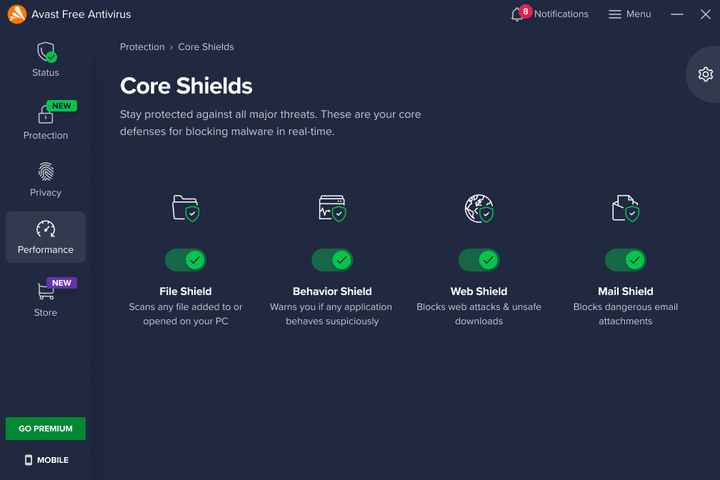Beware of Fake e-Shops: The Latest Scam Profiting Cybercriminals

- April 1, 2025
- Updated: April 1, 2025 at 1:09 PM

A few years ago, online shopping was practically taboo. Many people—particularly those who did not grow up in a digital environment—hesitated to shop online, fearful that their bank details or money could be stolen. Gradually, this fear has diminished, and now nearly everyone shops online. However, the danger of being scammed by seemingly legitimate digital stores still exists.
With the exponential growth of online shopping, cybercriminals have adapted their strategies to prey on unsuspecting consumers. One of the most commonly reported scams today involves fake online stores, or fraudulent e-Shops. These websites appear like regular stores but are actually fronts designed to defraud users and steal their data.
These fake e-Shops typically present themselves as legitimate sites, offering products at irresistible prices to attract unsuspecting buyers. But how can you protect yourself from them? Besides following the advice provided below, a crucial first step is using robust protection software like Avast Free Antivirus, offering real-time protection against malicious websites.
Fake e-Shops: How Does This Elaborate Scam Work?
Fake e-Shop scams use several tactics designed to deceive consumers. Although numerous methods exist, they generally include:
- Creating Fake Websites:
Cybercriminals design web pages that mimic legitimate online stores, using similar logos, designs, and domain names to appear authentic. - Irresistible Offers:
To attract victims, these sites offer popular or high-demand products at significantly reduced prices, creating a sense of urgency and prompting impulsive purchases without verifying the site’s legitimacy. - Deceptive Advertising:
Frequently, malicious ads appear on social media, phishing emails, and other platforms, promoting fake deals to a broad audience, thus increasing the chances of deceiving unsuspecting users. - Collecting Personal and Financial Information:
When purchasing from these fake stores, users unknowingly provide sensitive data like credit card numbers, addresses, and phone numbers, which scammers may exploit or sell on the black market. - Non-Delivery of Products:
Another common practice is that victims never receive their purchased items after completing a transaction. Often, the website disappears or becomes inactive, preventing complaints or refunds.

How Can You Identify a Fraudulent e-Shop?
Although cybercriminal tactics grow increasingly sophisticated, there are usually signs we can easily detect. Generally, do not trust an e-Shop if it has:
- Suspiciously Low Prices:
If an offer seems too good to be true, it probably is. Genuine deals exist online, but many overly attractive offers are well-disguised scams. - Suspicious Domains:
Always verify the website URL before purchasing. Scammers often use domains that mimic legitimate ones, changing or adding letters or using unusual domain extensions. Be cautious and use antivirus software like Avast to analyze domains in real-time. - Lack of Contact Information:
Another useful trick for identifying fraudulent websites is checking their contact information. Automatically distrust sites lacking a phone number or physical address. - Grammar and Design Errors:
Cybercriminals often overlook minor details like design quality or text accuracy. These mistakes indicate the website isn’t trustworthy. - Absence of Policies:
All legitimate e-Shops must have clear return policies, terms and conditions, and privacy policies. If these are missing, you’re likely dealing with a scam.
Protect Yourself from Fraudulent e-Shops with Avast Free Antivirus
Avoiding fake e-Shop scams largely depends on the user. Following the guidelines above and exercising caution while browsing can quickly reveal cybercriminal deception. However, we’re not always vigilant or equipped enough to detect scams independently. That’s why having reliable antivirus software is essential.
The most recommended antivirus against these scams is undoubtedly Avast Free Antivirus. In addition to being free, making it accessible to everyone, it stays updated on the latest scams. Avast Free Antivirus offers real-time protection against malicious websites.
Avast Free Antivirus provides real-time analysis, detecting and blocking suspicious websites, preventing you from entering personal data or making purchases on fraudulent sites. This feature is crucial against 21st-century online scams, increasingly difficult for humans to detect.
Furthermore, Avast Free Antivirus protects not only against fake e-Shops but also identifies and blocks other threats, including phishing, spyware, viruses, and more. Installing Avast ensures you’re alerted before inputting personal information or making risky purchases online.
Shop Securely with Avast Free Antivirus
Online shopping is no longer just convenient; it’s essential for many. The internet offers access to products and deals otherwise unavailable. However, alongside these abundant opportunities are potential dangers. With robust antivirus protection like Avast Free Antivirus, you can confidently embrace online shopping without compromising your safety, ensuring a secure and stress-free experience.
Cultural journalist specialized in film, series, comics, video games, and everything your parents tried to keep you away from during your childhood. Also an aspiring film director, screenwriter, and professional troublemaker.
Latest from Juan Carlos Saloz
- Common People recaptures the essence of Black Mirror: in a world of machines, the best episode focuses on people
- Why is it impossible for the second season of The Last of Us to live up to the first?
- Every five seconds, a hacker steals an identity: How to protect yourself during tax season
- Elevate Your Productivity: Meet the AI That Supercharges Adobe Acrobat
You may also like

Bluesky presents three levels of account verification
Read more

The FBI warns about the increase in scams targeting vulnerable victims
Read more

Be careful if you use certain mods in Helldivers 2: they could get your account banned
Read more

Nothing presents its new super cheap smartphone under the CMF brand
Read more

AI-based audio workflows in Audition: Revolutionizing sound editing
Read more

The hidden challenges of Skyrim keep players hooked a decade later
Read more